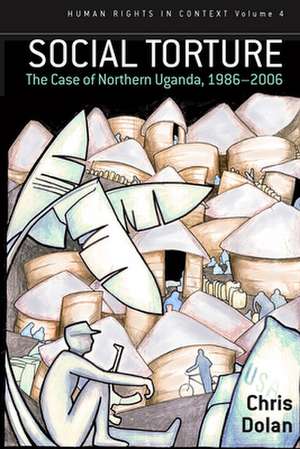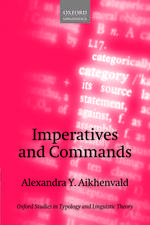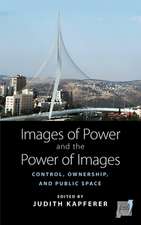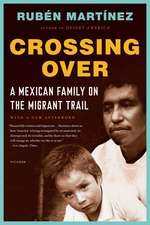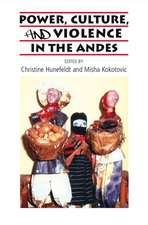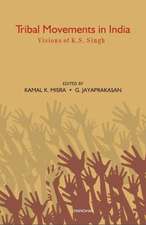Social Torture: Human Rights in Context, cartea 4
Autor CHRIS DOLANen Limba Engleză Paperback – 31 ian 2011
As Director of the Refugee Law Project at the University of Makerere, Kampala, Uganda, Dolan offers a behind-the-scenes, cross-disciplinary study of one of Africa¹s longest running and most intractable conflicts. This book shows how, alongside the activities of the Lord¹s Resistance Army, government decisions and actions on the ground, consolidated by humanitarian interventions and silences, played a central role in creating a massive yet only very belatedly recognized humanitarian crisis. Not only individuals, but society as a whole, came to exhibit symptoms typical of torture, and the perpetrator-victim dichotomy became blurred. It is such phenomena, and the complex of social, political, economic and cultural dynamics which underpin them, which the author describes as social torture. Building on political economy, social anthropology, discourse analysis, international relations and psychoanalytic approaches to violence, this book offers an important analytical instrument for all those seeking entry points through which to address entrenched conflicts, whether from a conflict resolution, postconflict recovery or transitional justice perspective.
| Toate formatele și edițiile | Preț | Express |
|---|---|---|
| Paperback (1) | 265.02 lei 6-8 săpt. | |
| BERGHAHN BOOKS INC – 31 ian 2011 | 265.02 lei 6-8 săpt. | |
| Hardback (1) | 807.61 lei 6-8 săpt. | |
| BERGHAHN BOOKS INC – 31 mar 2009 | 807.61 lei 6-8 săpt. |
Preț: 265.02 lei
Nou
Puncte Express: 398
Preț estimativ în valută:
50.71€ • 55.26$ • 42.73£
50.71€ • 55.26$ • 42.73£
Carte tipărită la comandă
Livrare economică 23 aprilie-07 mai
Preluare comenzi: 021 569.72.76
Specificații
ISBN-13: 9780857452917
ISBN-10: 0857452916
Pagini: 338
Dimensiuni: 152 x 229 x 19 mm
Greutate: 0.47 kg
Editura: BERGHAHN BOOKS INC
Seria Human Rights in Context
ISBN-10: 0857452916
Pagini: 338
Dimensiuni: 152 x 229 x 19 mm
Greutate: 0.47 kg
Editura: BERGHAHN BOOKS INC
Seria Human Rights in Context
Notă biografică
Chris Dolan has worked extensively with a range of organizations in Africa, Europe and South East Asia on issues related to conflict, forced migration, governance, gender and sexuality. He is Director of the Refugee Law Project at University of Makerere, Kampala, Uganda.
Cuprins
Acknowledgements List of Tables, Charts & Diagrams List of Illustrations List of Acronyms Map Of 'Protected Villages' in which Fieldwork Was Conducted Chapter 1. Introduction The Mainstream Discourse of Today's Wars Building Blocks of a Counter-Narrative Impacts Actors Benefits and Functions Justifications Elaborating a Model of Social Torture Overview of the Book Chapter 2. The Research Process Institutional Setting Working in a 'War Zone' Conceptual Challenges Horizontal Segmentation or Vertical Linkages? Acknowledging Peoples' Agency Ethical Considerations Methods Adopted Composition of the Research Team In-Depth Key-Informant Interviews Audio-Visual Data Media Monitoring Research Integrated with Programming - The Use of Focus Groups Dealing with Findings Discussion and Conclusions Subjectivity and Objectivity Chapter 3. An Overview of the Situation in Northern Uganda Introduction The Build-Up to War Phase I (1986 to 1988) Phase II (1988 to 1994) Phase III (1994 to 1999) Phase IV - Amnesty for 'Terrorists' (2000 to 2002) Phase V - Operation Iron Fist and Its Aftermath (2002 to 2003) Phase VI - November 2003 to June 2006 Phase VII - June 2006 Onwards The War As People Remember It Discussion Some Concluding Questions Chapter 4. Reconsidering the LRA-Government Dynamic Introduction The LRA's Ambiguities Composition The Extent of Civilian Support Links with the Lord's Resistance Movement The Role of the Media in Creating Ambiguity The LRA's Modus Operandi Administration and Control Survival and Proxy Warfare LRA Motivations and Politics Politics of Rejection The 1994 Peace Talks Discussion Further Nuances and Characterisations - Local Context Refining the Characterisations - Comparative Experiences An Appraisal of the Government's Initiatives Conclusions Chapter 5. Protection As Violation Introduction Part I - Formation and Organisation Physical Layout and Shelter Administration Mchaka-Mchaka Part II - Subsistence in the Camps Access to Land Reductions in Hunting Other Alternatives to Agriculture Group Formation Food Aid Problems with Distribution Demonstration Sites Calls To Allow People To Return Home Block Farming Part III - Access to Education Universal Primary Education (UPE) Drop-Outs Teacher Motivation Secondary Schooling Part IV - Access to Health Care Part V - Access to Protection When Was the LRA the UPDF? People's Responses Discussion and Conclusions Chapter 6. Protection As Debilitation Introduction Physical Debilitation Psychological Debilitation Suicide Heavy Drinking Cultural Debilitation Burial and Funeral Rites Breakdown of Restorative Justice Dance and Song External Interventions, which 'Diluted' Culture Changing Military-Civilian Relationships Discussion Signs of Resilience? Conclusions Chapter 7. Protection As Humiliation Introduction The Hegemonic Model of Masculinity What Women Are (Supposed To Be) Like What Youth Are (Supposed To Be) Like What Men Are (Supposed To Be) Like Masculine Roles The Gap between Model and Reality: Inability To Fulfill External and Internalised Expectations Acquisition of Knowledge Marriage Provision Physical Protection Further Threats to Sense of Masculinity 'Gender' Discourse and Practice Militarization The Impact of the Emergence of a Hegemonic Model Domestic Violence Increased Male Vulnerability to Violence State Benefits from the Hegemonic Model Discussion Conclusions Chapter 8. Social Torture and the Continuation of War Introduction Impacts and Methods Further Symptoms of Torture Actors Humanitarian Missions and Mandate Failures in Assistance and Protection Benefits and Functions Economics Psychological Political Justifications for Action and Inaction Justifying Action Justifying Inaction Discussion Low Intensity but Wide Impact Geographically Extensive and Time-Indifferent Multiple Actors Multiple Functions Social Torture Acquires Its Own Momentum Social Torture Is Justified in Public Discourses, which then Become Instruments of Social Torture Conclusions Chapter 9. Conclusions Social Torture Offers a Counter-Narrative to the Mainstream Discourse Greed-Grievance Social Torture Goes beyond the Convention Against Torture Social Torture Suggests the Need for More Comprehensive Interventions Appendices Bibliography Index
